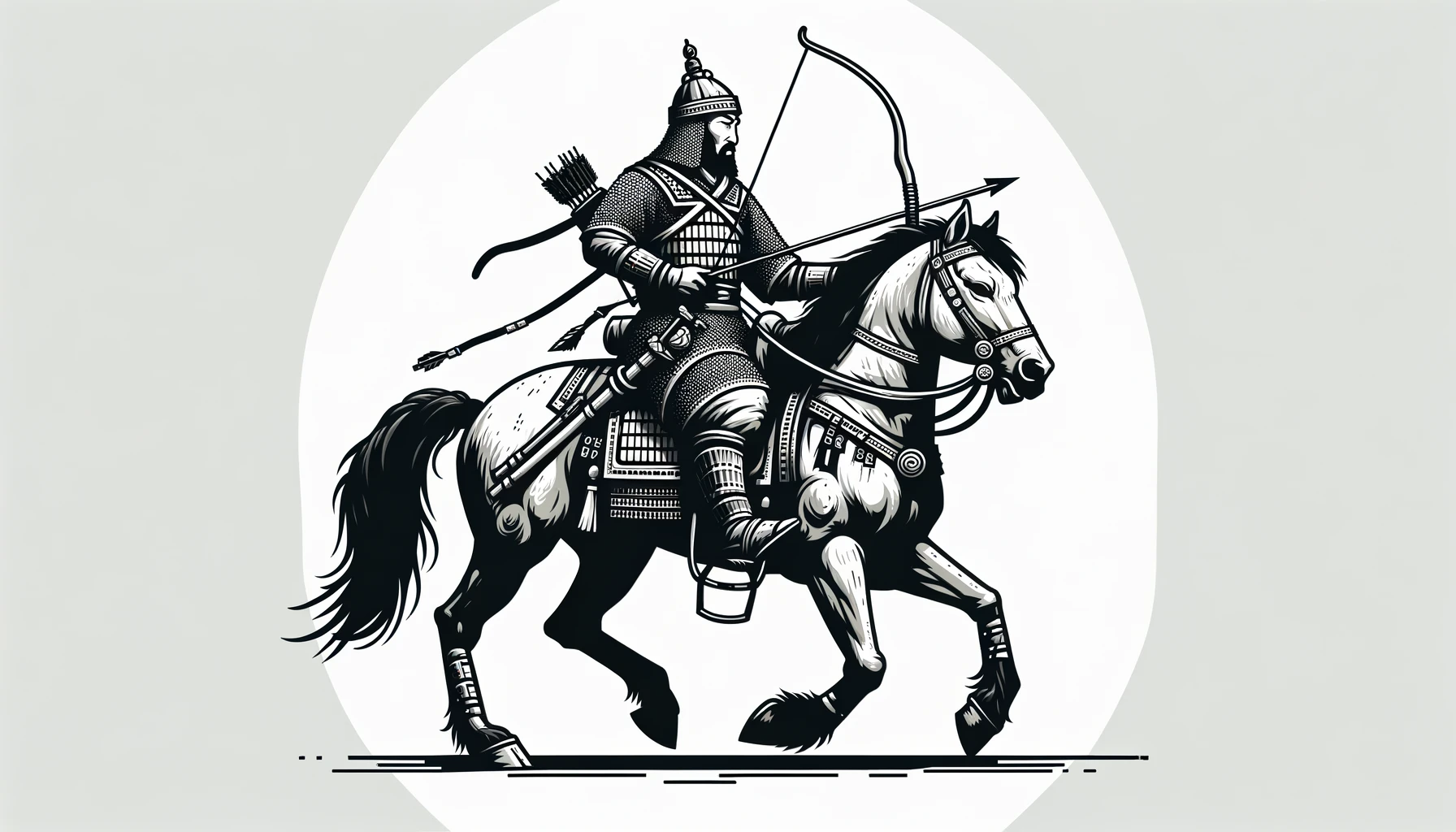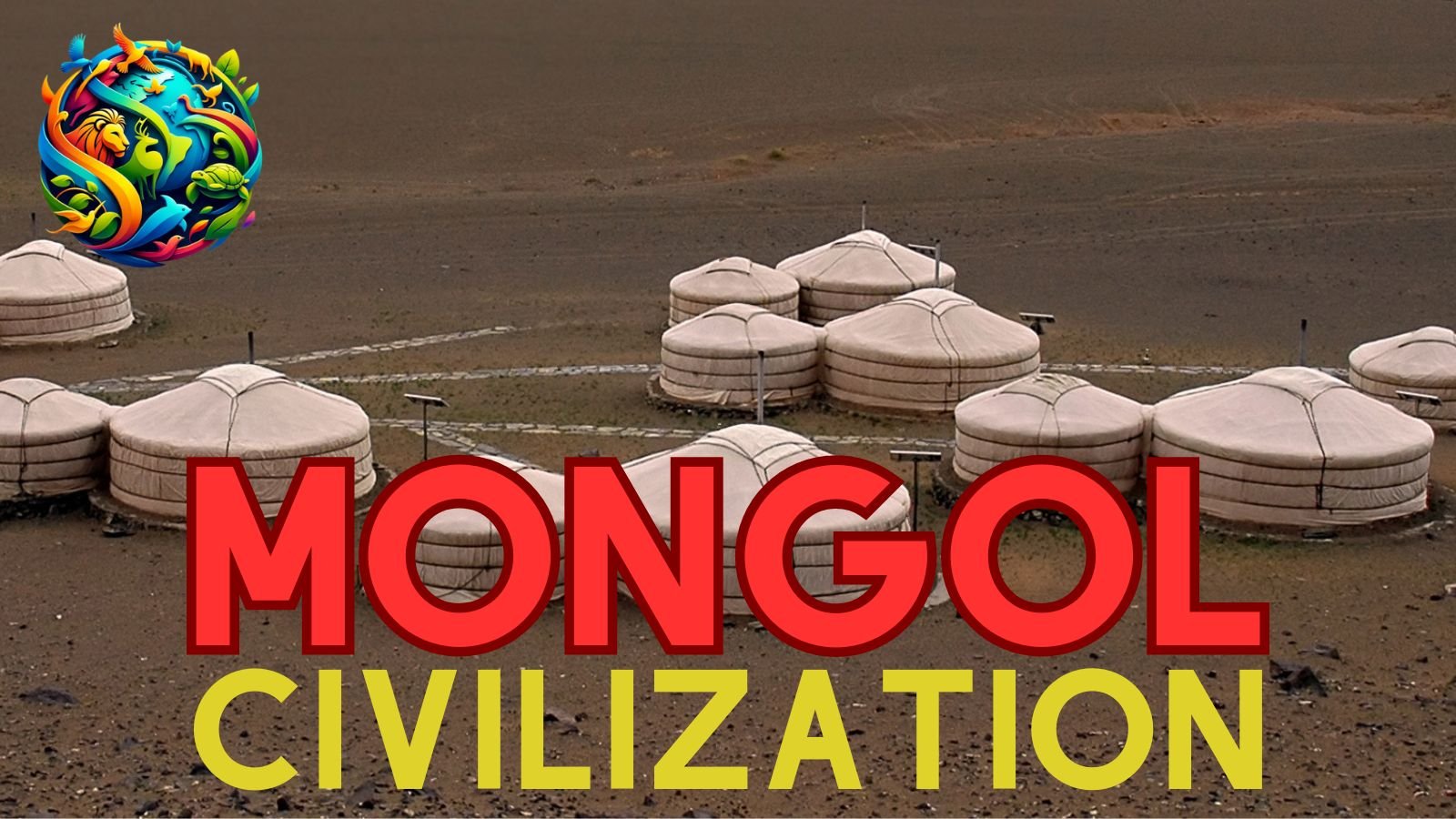Mongol Civilization: Nomads Who Shaped the World
Introduction
The Mongol civilization, emerging from the steppes of Central Asia, became one of history’s most formidable empires under the leadership of Genghis Khan. Known for their nomadic lifestyle, military prowess, and the vast empire they built, the Mongols left an indelible mark on the world, influencing the course of history across continents.
Origins of Mongol Civilization
The Mongols originated on the Mongolian plateau, leading a nomadic lifestyle centered around horseback riding and animal husbandry. Their society was organized into clans and tribes, which often engaged in conflicts over resources and territory.
The Rise of Genghis Khan
Born as Temujin around 1162, Genghis Khan rose from humble beginnings to unify the Mongol tribes under his leadership through a combination of military strategy, political alliances, and sheer determination. His leadership was marked by a series of reforms aimed at solidifying loyalty and efficiency within his army and administration.

Expansion of the Mongol Empire
Under Genghis Khan and his successors, the Mongol Empire expanded at an unprecedented rate, encompassing vast territories from China to Eastern Europe. This expansion was achieved through a combination of military conquests, strategic marriages, and diplomatic negotiations.
Conquest of Central Asia and China:
- The Mongols conquered the Western Xia and Jin Dynasties, laying the foundation for their control over China.
Invasion of the Khwarezmian Empire:
- The Mongols’ westward expansion continued with the destruction of the Khwarezmian Empire, which extended their reach into the Middle East.
Europe and Beyond:
- The Mongol invasions of Europe terrorized the continent, reaching as far west as Hungary and Poland.
Administration of the Mongol Empire
The Mongol Empire’s administration was characterized by pragmatism, religious tolerance, and a reliance on local governance. The empire was divided into several regions, each under the rule of a trusted Mongol leader or a local vassal.
The Yassa:
- Genghis Khan implemented a legal code known as the Yassa, which governed the empire’s laws and regulations, emphasizing loyalty, military discipline, and the protection of trade.
Trade and the Silk Road:
- The Mongols revitalized the Silk Road, ensuring the safety of merchants and facilitating the exchange of goods, cultures, and knowledge across Eurasia.
Cultural and Scientific Contributions
Despite their reputation as conquerors, the Mongols contributed significantly to the cultural and scientific fields, acting as catalysts for exchange and integration among diverse cultures.
- Transmission of Knowledge: The Pax Mongolica, or Mongol Peace, allowed for the safe passage of scholars, artists, and artisans across the empire, leading to significant cross-cultural exchanges.
- Astronomy and Medicine: Mongol patronage of the sciences led to advancements in astronomy and medicine as scholars from different parts of the empire shared their knowledge.
The Division and Decline of the Mongol Empire
After the death of Genghis Khan, the empire was divided among his sons into several khanates, including the Yuan Dynasty in China, the Golden Horde in Russia, the Chagatai Khanate in Central Asia, and the Ilkhanate in Persia. This division eventually led to the decline of Mongol power as the khanates became increasingly independent and distant from each other.
Legacy of the Mongol Empire
The Mongol Empire’s legacy is complex, marked by tales of destruction and cultural exchange. It played a crucial role in shaping the geopolitical landscape of Eurasia, contributing to the rise of the modern nation-state and influencing trade routes that are still in use today.
Conclusion
The Mongol civilization, with its humble beginnings and unprecedented expansion, demonstrates the incredible impact of nomadic peoples on world history. Their legacy, comprising both the scars of conquest and the fruits of cultural exchange, continues to be a subject of fascination and study, offering insights into the power of human ambition and resilience.
References and Further Reading
For further exploration of Mongol civilization, numerous academic texts, journals, and documentaries provide detailed analyses of their history, culture, and impact. Works by historians such as Jack Weatherford and Thomas Allsen offer comprehensive accounts of the Mongol Empire, from its rise to its lasting influence on global history.





Its not my first time to pay a quick visit this web page, i am
visiting this site dailly and obtain pleasant data from here everyday.
I will immediately seize your rss feed as I can’t in finding your e-mail subscription link or newsletter service. Do you’ve any? Please permit me recognize in order that I could subscribe. Thanks.
This is the right blog for anyone who wants to find out about this topic. You realize so much its almost hard to argue with you (not that I actually would want…HaHa). You definitely put a new spin on a topic thats been written about for years. Great stuff, just great!
demais este conteúdo. Gostei muito. Aproveitem e vejam este conteúdo. informações, novidades e muito mais. Não deixem de acessar para aprender mais. Obrigado a todos e até a próxima. 🙂
demais este conteúdo. Gostei muito. Aproveitem e vejam este site. informações, novidades e muito mais. Não deixem de acessar para descobrir mais. Obrigado a todos e até a próxima. 🙂
I like what you guys are up too. Such smart work and reporting! Keep up the superb works guys I have incorporated you guys to my blogroll. I think it’ll improve the value of my website :).